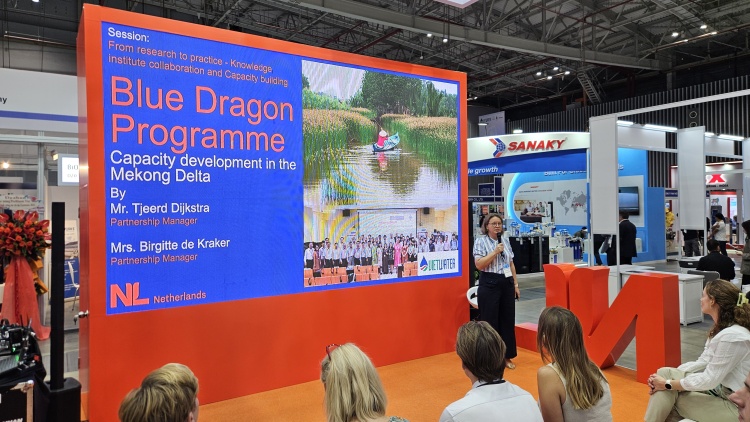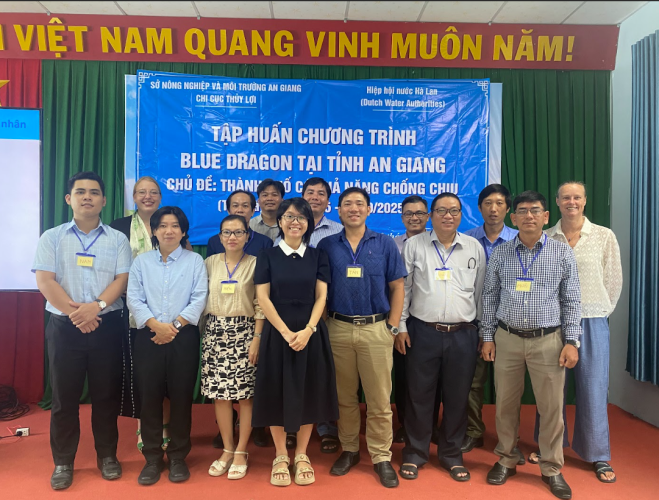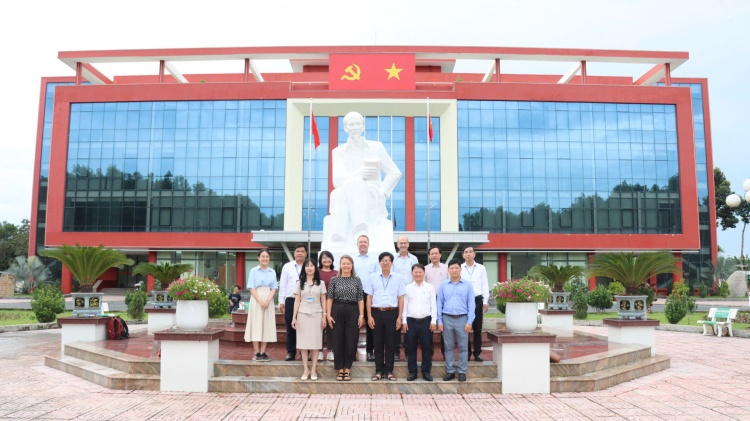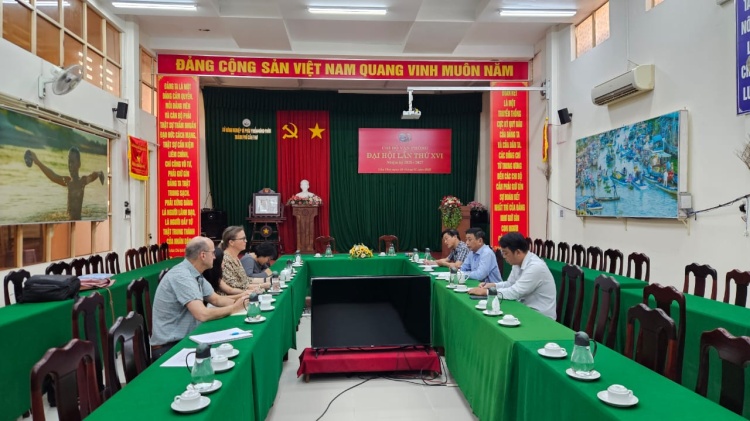
BLUE DRAGON PROGRAM (BDP) PHASE 2: FIRST QUARTER OF 2025 HIGHLIGHTS
In the first quarter of the year, the Blue Dragon Partnership (BDP) made significant strides in preparing for the Phase 2 expansion of the program in Vietnam. Led by BDP managers Birgitte de Kraker and Tjeerd Dijkstra, the team visited several provinces to engage with local stakeholders and discuss the upcoming activities and plans for 2025.
Engagement with Current and Potential BDP Provinces
The first quarter kicked off with meetings held with representatives from the provinces that are already part of the BDP, as well as those that may join the next phase. The primary goal of these meetings was to refine the BDP’s approach for the coming year and ensure that all stakeholders were aligned on the program’s objectives.
1. Can Tho, Kien Giang, and Hau Giang Provinces:
Discussions with these three provinces focused on the strategic plan for Phase 2 in 2025. Key topics included:
• Capacity Development Training Week (April 2025): The upcoming training on climate-resilient cities, aimed at enhancing the provinces’ ability to adapt to climate change and manage urban resilience, was a central theme of the conversations.
• Study Tour to the Netherlands (June 2025): The team also discussed the study tour, which will offer valuable learning opportunities for local officials to observe innovative solutions in water and resource management, particularly in the context of climate resilience.
.png)
2. Vinh Long and Soc Trang Provinces:
These two provinces are among the four that are being considered for joining the BDP Phase 2. Meetings with local government representatives from various offices and departments were held to identify and assess the water resources management challenges these provinces face. The discussions were aimed at exploring how the BDP could offer support through technical assistance, capacity building, and collaboration on sustainable water management practices.
These initial talks were highly engaging, and the partnership managers were optimistic about the potential for collaboration. Both provinces expressed strong interest in addressing their water management issues with the help of the BDP's expertise and resources.
.png)
Capacity Building through QGIS Training
One of the highlights of the first quarter was a three-day training session on QGIS for mapping and computing salinity intrusion along the Mekong River in Vietnam.
Salinity intrusion is becoming an increasingly pressing issue in the Mekong Delta, where it negatively impacts agriculture, drinking water supply, and ecosystems. The training aimed to equip local professionals with the skills necessary to use QGIS (Geographic Information System) for mapping and visualizing salinity levels, helping them make more informed decisions about water resource management.
As a representative of Hoogheemraadschap De Stichtse Rijnlanden, the trainer – Wieste Wierks shared knowledge on how to effectively use QGIS to monitor and mitigate the effects of salinity intrusion. The training was an important step in strengthening local capacity in water management, particularly in light of the growing climate challenges faced by the region.
The participants expressed enthusiasm about applying the new skills in their daily work, with the hope that the tools provided will support more effective water management in the Mekong Delta.
Challenges and Opportunities Ahead
As with any large-scale development initiative, the road ahead is not without its challenges. One of the main hurdles identified during the first quarter was ensuring that local authorities and stakeholders are equipped with the right tools and knowledge to implement effective water management strategies. The team is focused on addressing these challenges through tailored training programs and collaborative projects that bring together provincial governments, local experts, and international partners.
However, the positive reception from the provinces and the strong commitment to sustainable water management offer a wealth of opportunities for success in Phase 2.
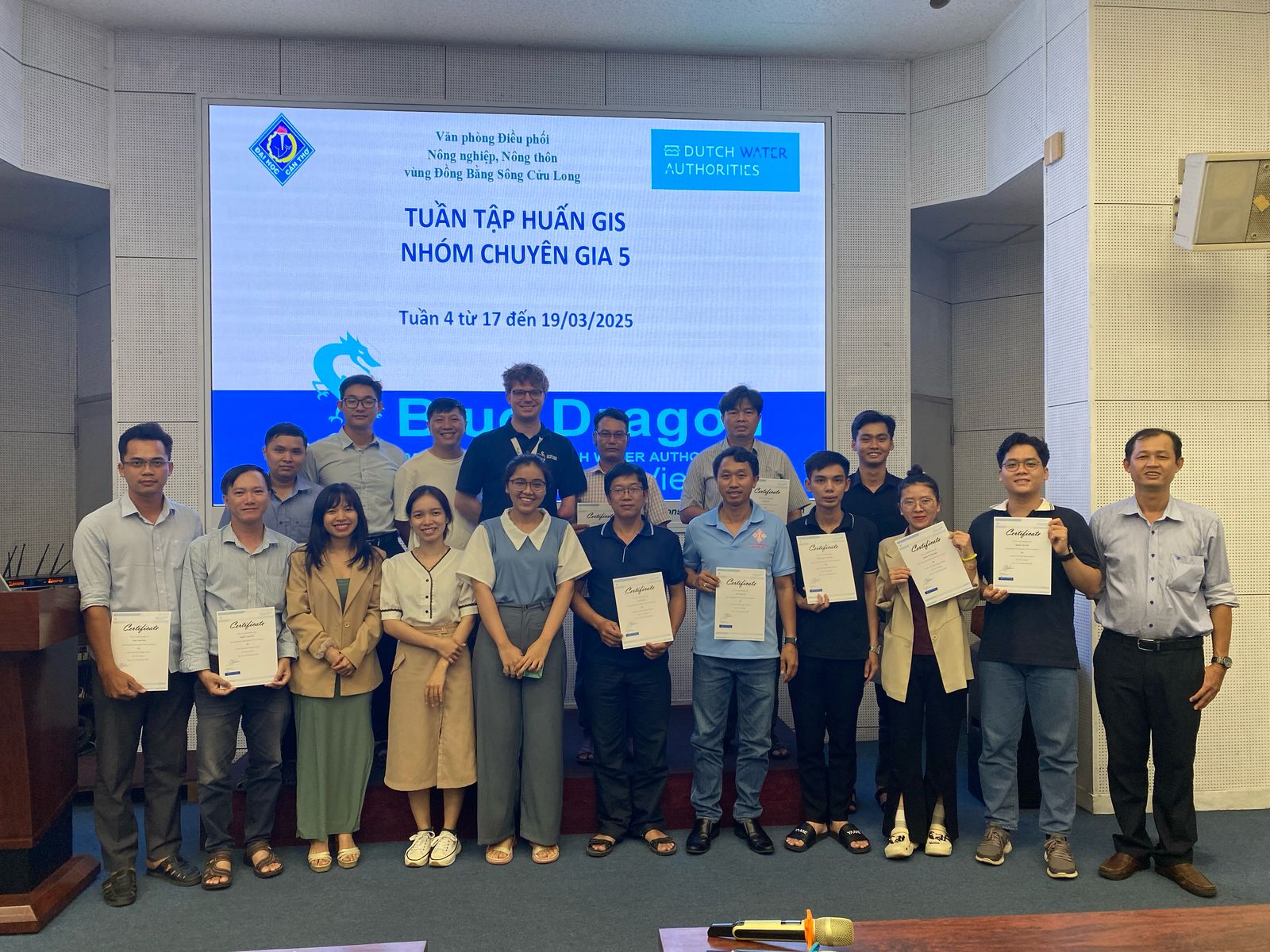
Looking Ahead to Phase 2
As the BDP prepares for Phase 2 in 2025, the partnership managers are optimistic about the upcoming activities and the expansion of the program to new provinces. With ongoing discussions, upcoming training events, and the study tour to the Netherlands on the horizon, the groundwork laid in the first quarter sets a strong foundation for the program’s growth and impact.
It is clear to see that the Blue Dragon Partnership is not only building momentum but also cultivating meaningful relationships with local stakeholders. The goal is to ensure that all participating provinces are equipped with the tools and knowledge to address climate change and water management challenges effectively.
In the coming months, the BDP will continue to work closely with these provinces to finalize the details for Phase 2, ensuring that the program’s activities are tailored to the unique needs of each region.
Another potential challenge to be mindful of is the merging of departments and provinces, which could lead to some delays in the program’s planning and execution. The changes in administrative structures may require time to adapt and align with the BDP’s activities, but the team is committed to working through these adjustments.
